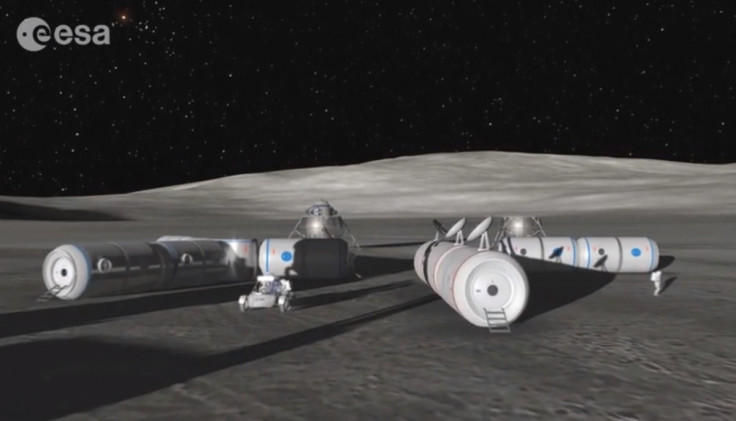Europe and Russia begin to make plans for a permanent settlement on the moon

Europe and Russia are planning to send an unmanned lander to the moon within the next five years to establish whether to construct a permanently-manned lunar base there. The European Space Agency (ESA) and Russian equivalent Roscosmos, want to send humans to the moon for the first time since Nasa cancelled its Apollo programme over 40 years ago.
Since Neil Armstrong stepped onto the moon in 1969, only 11 other humans achieved the same feat, the last of these being Eugene Cernan in 1972. Nasa cancelled its final three moon missions due to their staggering cost and because there didn't seem much interest in our nearest celestial neighbour. However, unmanned probes and surveys have established that the moon does have plenty of interesting features after all - including water.
The unmanned mission, Luna 27, will aim for the South Pole Aitken (SPA) basin which is one of the coldest places in the solar system and in almost permanent darkness. This could mean water has been trapped in the form of ice as well as other important materials.
Dr James Carpenter, ESA's lead scientist on the project, says: "The south pole of the Moon is unlike anywhere we have been before. The environment is completely different, and due to the extreme cold there you could find large amounts of water-ice and other chemistry which is on the surface, and which we could access and use as rocket fuel or in life-support systems to support future human missions we think will go to these locations."
#ESA plans for first human settlement on moon http://t.co/QTn6vh1zpr via @MailOnline a inflatable base made by robots pic.twitter.com/TMVnUTn7zd
— Beyond The Matter (@BeyondMatter) November 7, 2014It is hoped a moon base could be used as a staging post for later trips to Mars, as well as being the location of a deep space telescope able to function without earthly interference. Unlike during the Apollo era, countries will work together towards a common goal. As well as European nations including Britain and Russia, China may also play a part in establishing a moon base. Chinese scientists are already planning to establish mines on the moon to extract precious minerals.
"We should have international cooperation, without any limitations, with any countries of the world," says Director General of the European Space Agency, Professor Johann-Dietrich Woerner. "We have enough Earthly problems between different nations – space can bridge these Earthly problems and the Moon seems to be to be a good proposal."
© Copyright IBTimes 2025. All rights reserved.






















